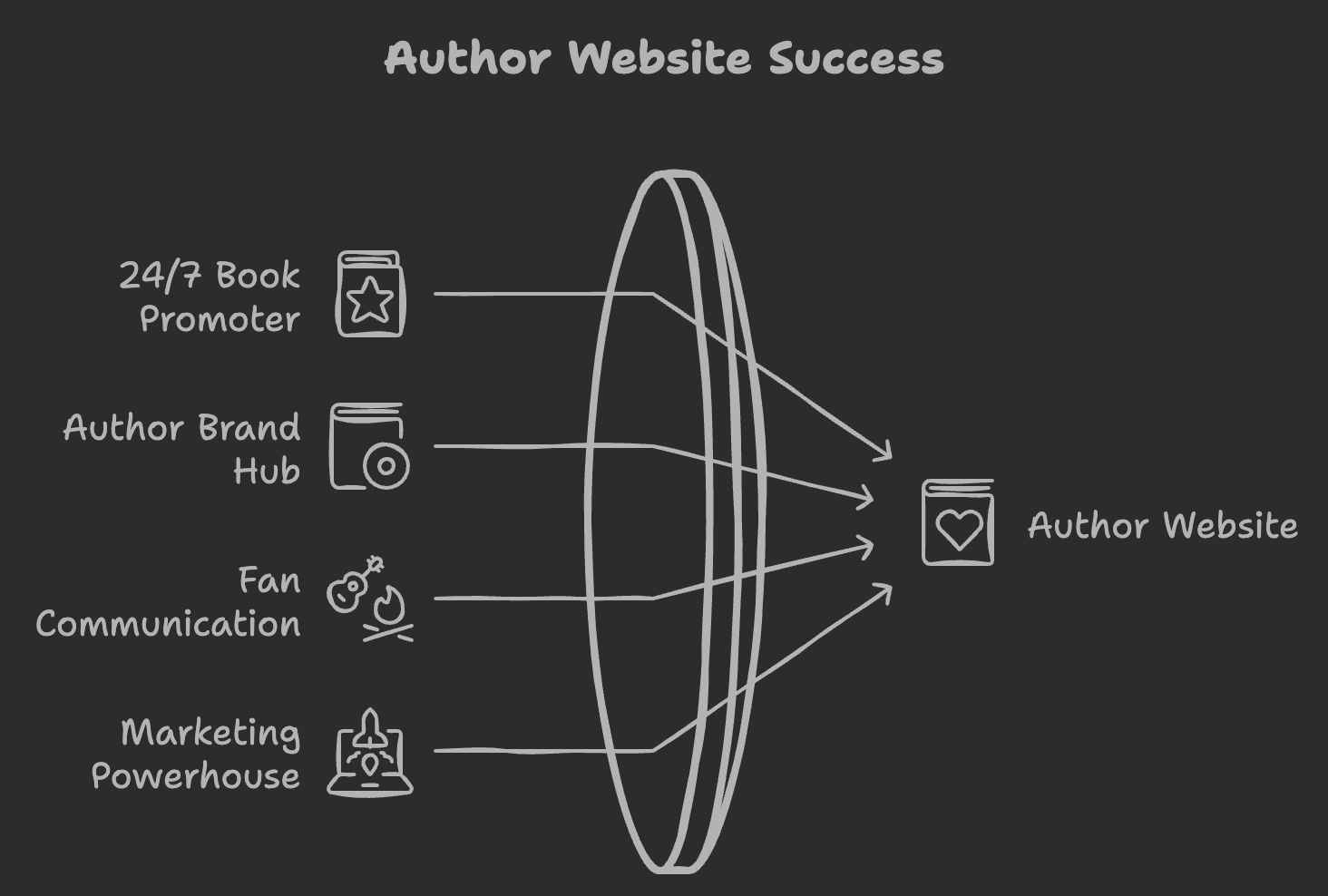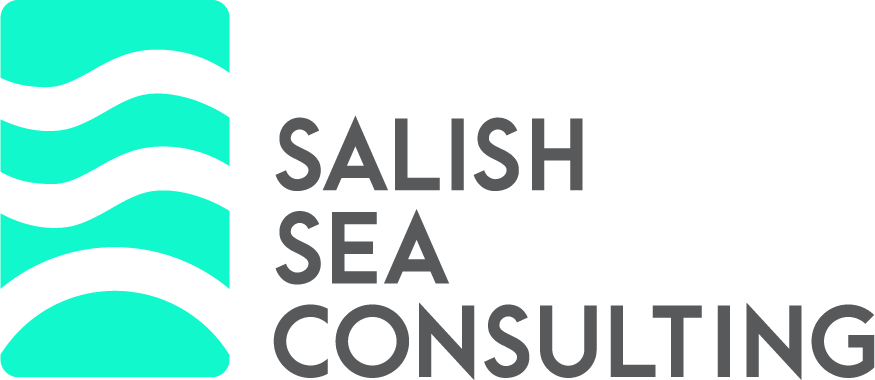How to Create Your Author Website


Author Website Design: Complete Guide That Sells Books [2025]
Introduction
In today's digital landscape, 73% of readers discover new authors online, yet most author websites fail to convert visitors into book buyers. Your professional author website isn't just an online business card—it's your most powerful sales tool and the foundation of your book marketing strategy.
Unlike generic business websites, author websites require a unique approach that balances creative storytelling with conversion optimization. Whether you're a debut novelist learning how to create an author website, established non-fiction writer, or indie author building your platform, your website design directly impacts your book sales, reader engagement, and publishing opportunities.
This comprehensive guide reveals the proven strategies and design principles that turn author websites into book-selling machines. You'll discover how to create an author website that converts visitors into readers, impresses industry professionals, and drives consistent book sales—regardless of your technical experience or budget.
Why Author Website Design Matters for Book Sales
The Hidden Cost of Bad Author Website Design
Recent industry data reveals that authors with professionally designed websites sell 34% more books than those without one. For debut authors, this jumps to 41% higher first-book sales compared to relying solely on social media marketing.
The reason is simple: readers expect professionalism. When a potential reader lands on a poorly designed author website—one with confusing navigation, outdated design, or missing book information—they question the quality of your writing. Within seconds, they're gone, often never to return.
Romance author Sarah Mitchell experienced this firsthand. Her original DIY website had a 78% bounce rate and generated zero book sales despite thousands of monthly visitors. After investing in professional author website design, her bounce rate dropped to 31% and direct book sales increased by 156% within six months. Her new author website that converts visitors into readers transformed her entire book marketing strategy.
What Makes Author Websites Different
Author websites serve a fundamentally different purpose than traditional business sites. Your visitors aren't looking for services—they're seeking emotional connection, entertainment, and escapism. This requires a unique approach to writer website design that considers:
Genre Psychology: Romance readers expect warm, inviting designs with elegant typography, while thriller readers respond to bold, dramatic layouts with high contrast. Children's book authors need playful, colorful designs that appeal to both kids and parents.
Reader Journey Differences: Unlike typical website visitors, readers often arrive already interested in your work. They're looking for validation that you're worth their time investment. Your author platform website must quickly establish credibility while showcasing your books attractively.
Emotional Decision Making: Book purchases are emotional decisions. Your author branding website design must evoke the same feelings your books deliver—whether that's cozy comfort for romance readers or edge-of-your-seat excitement for mystery fans.
Industry Professional Expectations
Publishers, literary agents, and media professionals actively evaluate author websites when considering partnerships. A Penguin Random House editor recently noted: "When comparing similar manuscripts, the author with a professional author website often gets the contract."
Your website serves as proof of your marketing savvy and professional commitment. Literary agents report that authors with strong online platforms receive 40% more consideration for representation, while publishers increasingly factor author platform strength into advance calculations.
Essential Author Website Design Elements
Homepage That Hooks Readers Instantly
Your homepage has three seconds to convince visitors they're in the right place. The best author website examples follow a proven formula that immediately communicates who you are, what you write, and why readers should care.
Hero Section Best Practices: Feature your latest book prominently with a high-quality cover image. Include a compelling tagline that encapsulates your genre and writing style. Fantasy author Brandon Chen's homepage tagline "Epic adventures where magic meets technology" immediately signals his niche and attracts the right readers.
Book Showcase Positioning: Display your books as the hero, not yourself. Readers visit author websites to discover books, not learn about your personal life. Position book covers prominently with clear purchase links to major retailers. This approach to book website design maximizes conversion potential.
Author Brand Messaging: Craft a brief, compelling description that connects your personality to your writing. Historical fiction author Maria Rodriguez uses "Bringing forgotten women's stories to vibrant life" to immediately communicate her focus and passion.
About Page That Builds Author Authority
Your About page often receives the second-highest traffic after your homepage. It's where readers decide whether to trust you with their time and money.
Professional Author Bio Structure: Lead with your writing credentials and achievements. Include your publication history, awards, and media mentions. However, balance professional accomplishments with personal touches that make you relatable.
Photo Guidelines for Different Genres: Romance authors benefit from warm, approachable headshots, while business book authors need more formal, authoritative images. Children's book authors should include photos that convey playfulness and trustworthiness.
Social Proof Integration: Include testimonials, review quotes, and media mentions. Bestseller lists, awards, and industry endorsements build credibility faster than any marketing copy.
Books Page That Drives Sales
Your Books page is your digital bookstore. Design it to make purchasing decisions easy and compelling, creating an author website for book sales that actually converts.
Book Presentation Layouts: Display books in a visually appealing grid or carousel format. Include high-resolution cover images, compelling descriptions, and clear purchase buttons for each major retailer.
Purchase Button Placement: Make buying easy with prominent "Buy Now" buttons linked to Amazon, Barnes & Noble, Apple Books, and other major retailers. Consider using universal book links that let readers choose their preferred retailer.
Reader Review Integration: Include selected reader reviews and ratings for each book. Social proof significantly impacts purchase decisions, with 92% of readers checking reviews before buying.
Genre-Specific Design Considerations
Romance Author Website Design: Use warm color palettes (soft pinks, deep purples, gold accents), elegant serif fonts, and flowing layouts. Include series information prominently, as romance readers often binge entire series.
Non-Fiction Author Website Design: Emphasize authority with clean, professional layouts, plenty of white space, and clear typography. Include speaking topics, media kit downloads, and thought leadership content.
Children's Author Website Design: Balance appeal to both children and parents with playful fonts, bright colors, and interactive elements, while maintaining professionalism for parent decision-makers.
Indie Author Website Design: Focus on building direct reader relationships with prominent newsletter signups, behind-the-scenes content, and reader community features. Emphasize your unique voice and direct connection to readers.
How to Create an Author Website: Technical Foundation
Platform Comparison for Authors
When learning how to create an author website, choosing the right platform affects both your immediate success and long-term growth potential. Here's how the top author website builder options compare:
WordPress: Offers maximum flexibility and SEO capabilities. Best for authors planning to blog regularly or needing advanced features. Requires more technical knowledge but provides unlimited customization options.
Squarespace: Excellent for authors prioritizing visual design. Templates are beautiful and mobile-responsive, with strong e-commerce capabilities for selling books directly. Limited blogging features compared to WordPress.
Framer: Modern, design-forward platform perfect for authors wanting cutting-edge visual presentation. Excellent animation capabilities and mobile optimization. Steep learning curve but produces stunning results.
Webflow: Professional-grade platform offering designer-level control without coding. Ideal for authors wanting unique, custom designs. Strong SEO features and hosting included.
Ghost: Content-focused platform designed specifically for publishers. Excellent for authors who blog frequently. Clean, minimalist designs and superior page speed. Limited design customization options.
SEO for Author Websites
Author Name Optimization: Your homepage should rank #1 for searches of your name. Include your full name in the page title, meta description, and throughout the content naturally.
Book Title SEO: Create dedicated pages for each book optimized for "[Book Title] + [Author Name]" searches. Include book descriptions, reader reviews, and purchase links.
Local SEO for Events: If you do book signings, speaking events, or workshops, optimize for "[Author Name] + [City]" searches. Include event calendars and location-specific content.
Mobile-Friendly Author Website Design
Mobile Reading Behavior: 68% of readers browse author websites on mobile devices. Your mobile-friendly author website design must be finger-friendly with large, tappable buttons and readable text without zooming.
Touch-Friendly Design: Ensure navigation menus, book covers, and purchase buttons are large enough for easy tapping. Test your site on actual devices, not just browser resize tools.
Page Speed Importance: Mobile readers expect pages to load in under 3 seconds. Optimize images, minimize plugins, and choose fast hosting to prevent reader abandonment.
Author Website Design Investment Guide
DIY vs. Professional Design
When to Choose DIY: If you're comfortable with technology, have limited budget ($200-500), and don't mind investing significant time learning website basics. Modern platforms make DIY more feasible than ever.
When to Hire Author Website Designer: If you want to focus on writing rather than web design, need custom functionality, or want results that compete with traditionally published authors. When you hire author website designer professionals, expect to invest $1,500-5,000, but projects often pay for themselves through increased book sales.
Finding a Freelance Author Website Designer: Look for designers who specialize in author websites and understand book marketing. Check their portfolio for author website examples in your genre, and verify they offer ongoing support.
Hidden Costs of DIY: Beyond platform fees, consider the time investment (40-60 hours for a quality site), stock photos ($100-300), and potential lost sales from suboptimal design. Many authors underestimate the learning curve and abandon half-finished websites.
Author Website Design Pricing
Template Customization: $500-1,500 for professional customization of existing templates. Good middle ground between DIY and custom author website design.
Custom Author Website Design Investment: $2,000-8,000 for fully custom author websites. Higher-end designs include advanced features like book series pages, event calendars, and e-commerce integration.
Ongoing Maintenance Budgets: Plan for $50-200 monthly for hosting, security updates, and content management. Professional maintenance ensures your site stays secure and functional.
Maximizing Your Website Investment
Launch Strategy: Don't launch quietly. Announce your new website across all social media platforms, include it in your email signature, and update all author bios immediately.
Performance Tracking: Use Google Analytics to monitor visitor behavior, popular pages, and conversion rates. This data guides future improvements and content decisions.
Conversion Optimization: Test different book cover positions, button colors, and page layouts. Small changes can significantly impact book sales and newsletter signups.
Common Author Website Mistakes to Avoid
Navigation Disasters That Drive Readers Away
The "Creative Menu" Trap: Author Marcus Thompson created a navigation menu using handwritten script fonts with labels like "My Journey," "Tales," and "Connect." While artistic, visitors couldn't quickly identify where to find his books. After switching to clear labels like "Books," "About," and "Contact," his book page visits increased by 67%.
The Hidden Books Problem: Romance author Lisa Chen buried her book information three clicks deep under "Works > Published > Novels." Readers abandoned the site before finding purchase links. The solution: a prominent "Books" tab in the main navigation that's never more than one click away.
Mobile Menu Failures: Mystery writer David Park's desktop navigation worked perfectly, but on mobile devices, his dropdown menus were impossible to tap accurately. Touch targets smaller than 44 pixels create frustration—ensure mobile navigation elements are finger-friendly.
Book Presentation Failures That Kill Sales
The Tiny Cover Syndrome: Historical fiction author Jennifer Walsh displayed postage-stamp-sized book covers that readers couldn't see clearly. Research shows book covers should be at least 200x300 pixels for web display, with larger hero images for featured books.
Missing Purchase Links: The most common mistake discovered by website designer Charlotte Duckworth is authors who post book images without purchase links. "Every book image should have a clear call-to-action underneath," she notes. "If readers can't buy immediately, they'll forget."
The Series Confusion: Fantasy author Robert Kim listed his seven-book series in random order without book numbers or reading sequence. Readers couldn't determine where to start. Simple fix: display series books in clear chronological order with "Book 1," "Book 2" labels.
Content Mistakes That Lose Readers
The "Welcome to My Website" Greeting: This generic homepage message tells visitors nothing useful. Instead, lead with compelling information like "Award-winning thrillers that keep you guessing until the final page" or "Cozy mysteries set in small-town Vermont."
Homepage Blog Overload: Many authors default to showing recent blog posts on their homepage. Unless your blog is consistently updated and compelling, this pushes books below the fold. Jane Friedman recommends featuring books prominently and linking to recent posts instead.
Outdated Information: Author websites frequently contain outdated bios mentioning "upcoming books" that were published years ago, or old event listings. Set calendar reminders to review and update core content quarterly.
This focused approach with real examples makes the mistakes more concrete and actionable, while cutting unnecessary detail that diluted the message.
Author Website Must-Haves
Author Website Checklist for Launch
Pre-Design Planning: Define your goals (book sales, newsletter growth, industry credibility), identify your target readers, and gather all necessary content including book descriptions, author bio, and professional photos.
Content Preparation: Write compelling copy for all major pages, optimize book descriptions for both search engines and readers, and prepare high-quality images including book covers and author photos.
Launch Essentials: Set up Google Analytics for tracking, create social media profiles that match your website branding, and prepare announcement content for your website launch.
Working with Author Website Designers
Questions to Ask Designers: Request author website examples they've created, ask about their experience with book marketing, and verify they understand genre-specific design requirements.
What to Expect in the Process: Professional projects typically take 4-8 weeks from start to finish. Expect multiple revision rounds and clear communication about timelines and deliverables.
Communication Best Practices: Provide clear feedback with specific examples, respond promptly to designer questions, and trust their expertise while communicating your vision clearly.
Next Steps After Launch
Analytics Setup: Install Google Analytics and Google Search Console to monitor website performance, track visitor behavior, and identify optimization opportunities.
Content Marketing Integration: Plan regular content updates, whether through blogging, book announcements, or reader engagement features. Fresh content improves search rankings and reader retention.
Ongoing Optimization: Review analytics monthly, test different page layouts and calls-to-action, and continuously improve based on reader behavior and feedback.
Your professional author website is more than an online presence—it's your most powerful book marketing tool and the foundation of your publishing career. The difference between a generic website and a strategically designed author platform website can mean the difference between struggling to find readers and building a thriving, sustainable writing career.
The authors seeing the greatest success combine professional design with strategic content, genre-appropriate aesthetics, and conversion-focused functionality. Whether you choose DIY or professional design, the key is creating a website that serves your readers while advancing your career goals.
Don't let poor website design cost you book sales and opportunities. Start planning your author website today, and watch as it transforms from a simple online presence into your most effective marketing asset.
Ready to create an author website that sells books? Contact us for a free consultation about your author website design project, or download our free Author Website Planning Guide to get started on your own.
Choosing the Right Website Builder
The right platform for you will depend on your needs and preferences:
| Platform | Description |
|---|---|
| Carrd | Super simple to use and ideal if you’re on a budget or just starting out. |
| Showit | Great for authors who want a lot of creative control and customization. |
| Framer | Offers a sleek, modern design that’s perfect for authors who want a highly visual site. |
| Ghost | A solid choice if you’re focused on blogging and want a clean, minimalist look. |




